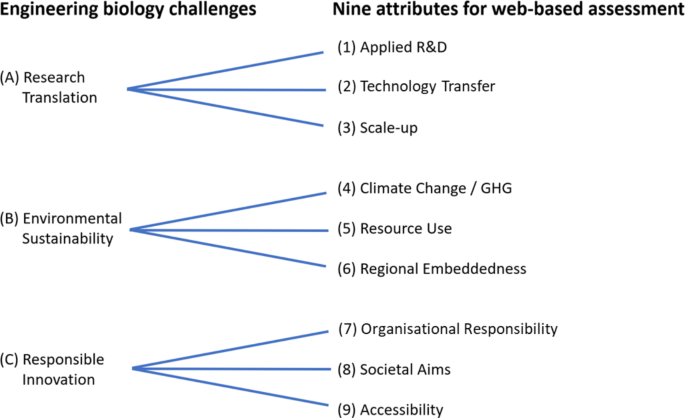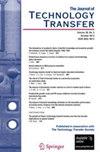Public biofoundries as innovation intermediaries: the integration of translation, sustainability, and responsibility
IF 4.3
2区 管理学
Q1 MANAGEMENT
引用次数: 0
Abstract
Abstract The emergence and evolution of engineering biology, and its potential to address multiple global challenges is associated with the rise of biofoundries. These innovation intermediaries are facilities that employ advanced automation and computational analytics to accelerate engineering biology applications. Yet, for biofoundries to fully achieve their promise of generating applications that address grand societal challenges, they need to meet three key challenges: translation of research technology and its commercialization, attention to sustainability, and responsible innovation. Using web content analysis and interviews, this paper explores the functions and capabilities undertaken by existing public biofoundries, the extent to which they address these three challenges, and opportunities and models for enhancement. We also probe the roles undertaken by three other contrasting types of innovation intermediaries to identify practices and opportunities for integration and partnering with public biofoundries. We find that public biofoundries exhibit relatively strong capabilities for research translation, whereas efforts toward sustainability and responsibility are generally less prominent. For biofoundry enhancement, we propose an organisational model based on external partnering where public biofoundries are positioned as intermediaries within regional innovation systems. The framework put forward is reproducible and could be used in other contexts for assessing innovation intermediary organisational functions and capabilities toward meeting societal challenges.

公共生物铸造厂作为创新中介:翻译、可持续性和责任的整合
工程生物学的出现和发展,以及它解决多重全球挑战的潜力与生物代工厂的兴起有关。这些创新中介是采用先进自动化和计算分析来加速工程生物学应用的设施。然而,对于生物铸造厂来说,要充分实现其产生解决重大社会挑战的应用的承诺,他们需要满足三个关键挑战:研究技术的转化及其商业化,对可持续性的关注以及负责任的创新。本文利用网络内容分析和访谈,探讨了现有公共生物铸造厂所承担的功能和能力,它们应对这三个挑战的程度,以及改进的机会和模式。我们还探讨了其他三种不同类型的创新中介机构所承担的角色,以确定与公共生物铸造厂整合和合作的实践和机会。我们发现公共生物铸造厂表现出相对较强的研究转化能力,而对可持续性和责任的努力通常不太突出。为了加强生物铸造厂,我们提出了一种基于外部合作的组织模式,其中公共生物铸造厂被定位为区域创新系统中的中介。该框架具有可重复性,可用于评估创新中介组织应对社会挑战的职能和能力。
本文章由计算机程序翻译,如有差异,请以英文原文为准。
求助全文
约1分钟内获得全文
求助全文
来源期刊

Journal of Technology Transfer
MANAGEMENT-
CiteScore
10.20
自引率
12.50%
发文量
66
期刊介绍:
The Journal of Technology Transfer provides an international forum for research on the economic, managerial and policy implication of technology transfer, entrepreneurship, and innovation. The Journal is especially interested in articles that focus on the relationship between the external environment and organizations (governments, public agencies, firms, universities) and their innovation process. The Journal welcomes alternative modes of presentation ranging from broad empirical analyses, to theoretical models, to case studies based on theoretical foundations. Officially cited as: J Technol Transf
 求助内容:
求助内容: 应助结果提醒方式:
应助结果提醒方式:


